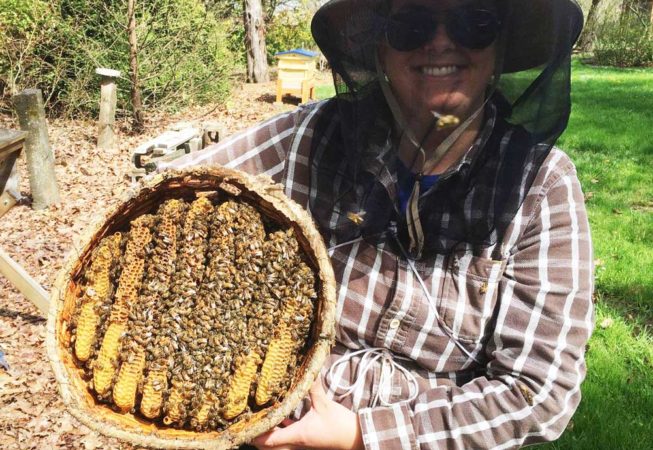Panel: Current and Future Outlook on Varroa Mite Control
The parasitic mite, Varroa destructor, has held the title as the #1 contributor of honey bee health decline for years. Beekeepers struggle to manage Varroa mite levels in their colonies; some must apply treatment applications four times yearly to maintain healthy colonies. Elevated honey bee mortality rates drive the beekeeping industry and scientific community to find sustainable solutions to control Varroa mites. Here we present a panel discussion on the current and future outlook of Varroa mite control. Ellen Topitzhofer will moderate an industry- and science-based group of panelists: Todd Balsiger, Matt Hansen, Jan Lohman, and Dr. Ramesh Sagili. Topics include control strategies, amitraz resistance, Varroa resistant bee stock, and up-and-coming miticide treatments.
Ellen Topitzhofer became interested in honey bees while studying plant genetics and breeding at the University of Minnesota. She then studied honey bee nutrition as part of her MS at Oregon State University. After graduating, she hit the road and worked with commercial beekeepers all over the Northwest as part of the Bee Informed Partnership’s Tech Transfer Team mastering on-the-ground testing, secret-keeping, and applicable research. She currently works as a faculty research assistant in the OSU Honey Bee Lab with a research focus on self-sufficient queen supply techniques.

